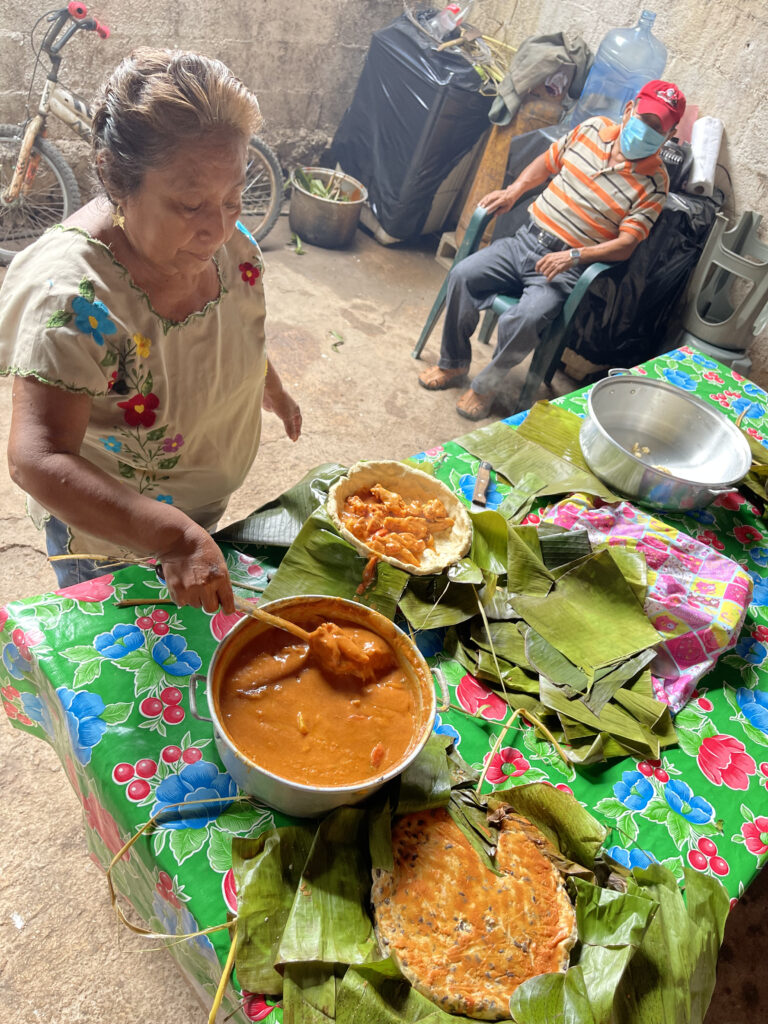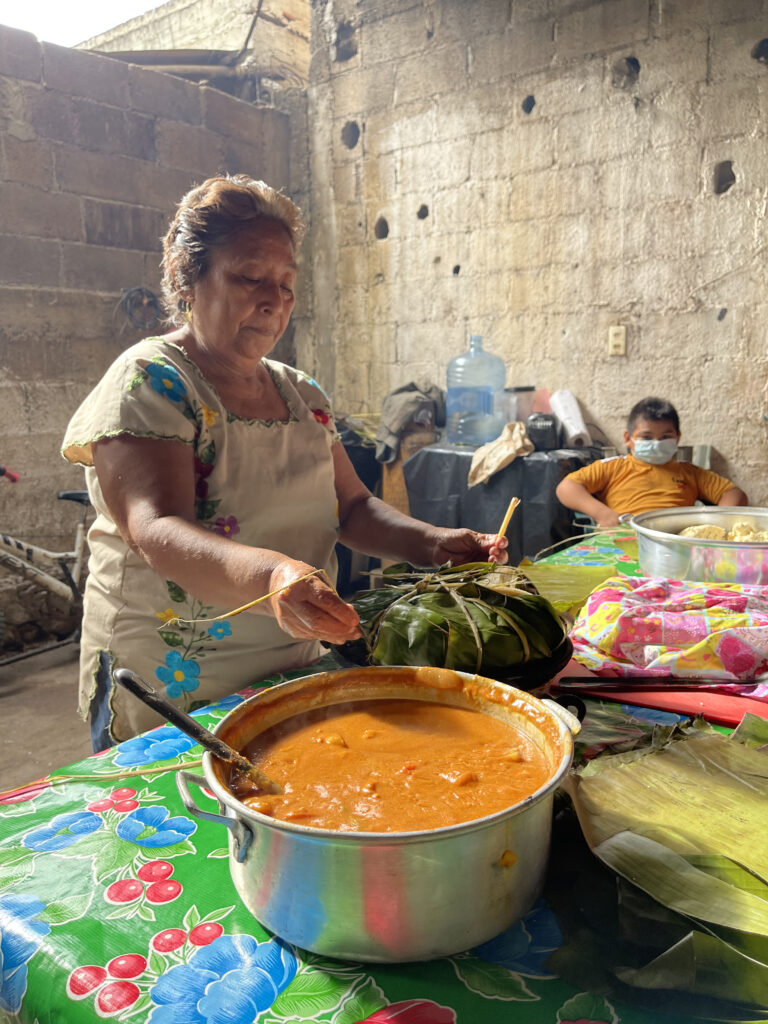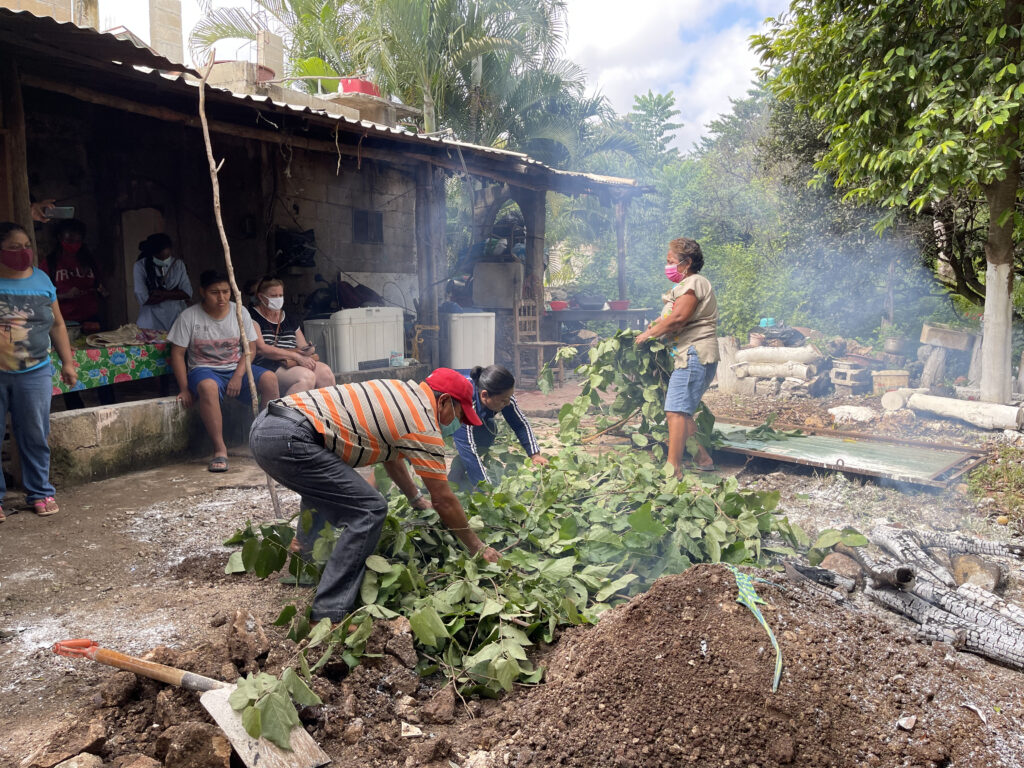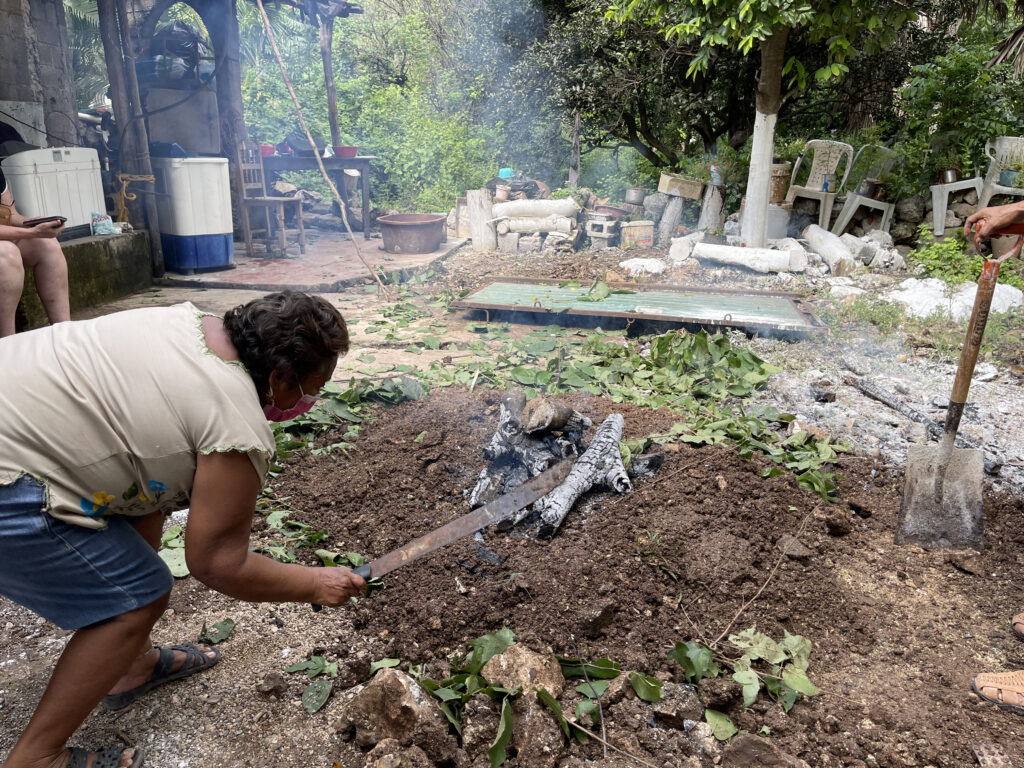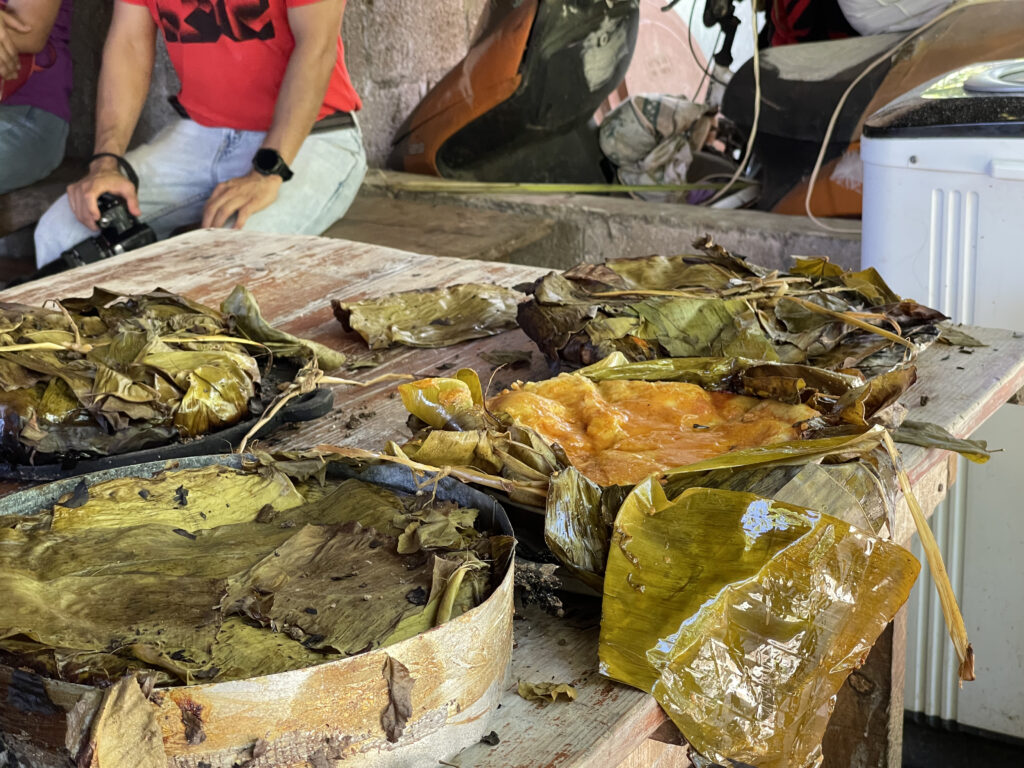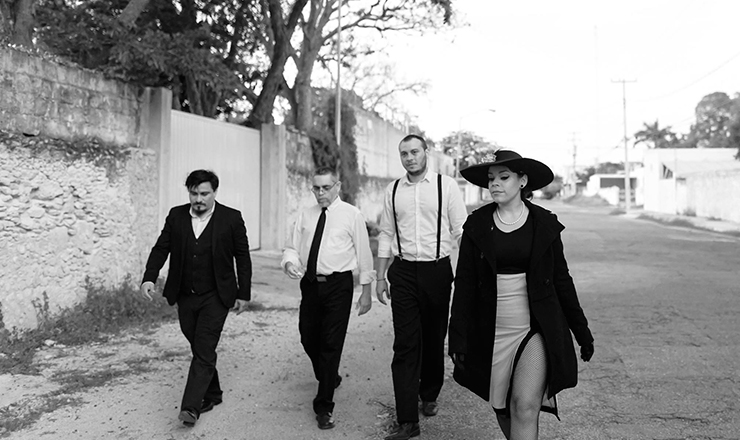This month on October 30th we will go on our annual journey to Pomuch, Campeche about 1 hour and 20 minutes from Merida. It’s a beautiful and authentic Hanal Pixan experience in the heart of where traditions are kept sacred, the pueblos of Southern Mexico.
TO JOIN THIS YEAR’S GROUP MESSAGE WRITE: editor@midcitybeat.com
The following is an account of our first trip:
El Pib
As we arrived to the town, grandmother and grandfather Norma and Clemente invited us into their humble home where three generations of the family were graciously awaiting our arrival. They planned to share with us the fascinating tradition of making the sacred food mucibpollo or “pib” which they prepare every year for the pixanes, souls in Maya.
Norma’s daugher Maria confessed that they had not slept the whole night in preparation for our arrival. They busily prepared the cornmeal for the tamal, dug the hole in the ground for the pibil oven, gathered rocks and leña (wood for the fire), and cleaned their house. On this occasion they arranged the feast for us. However, every year during the weeks of Hanal Pixan, the preparations are part of the celebration all over Yucatan, Campeche and Quintana Roo as people get ready for the souls of their loved ones to return to them on Nov 1st and 2nd.
Maria had a table set up so we could learn how to make the pib, which is an elaborate process. It involves preparing the cornmeal, then making the “kol”, which is traditionally a mix of broth, chicken, pork, achiote and herbs. Next they put the ingredients together, wrap it in banana leaves and place it in the earth pibil oven. It is then covered with leaves and dirt so the smoke doesn’t escape and left to cook for 1.5-2 hours. We left the pib to cook tightly nestled under the leaves and in the burning rocks, we headed down to the cemetery to witness a very unique ceremony that the families in the town all take part in: the cleaning of the bones of their deceased ancestors.
Bone Cleaning Tradition
After a loved one passes on, their bodies are buried in the cemetery. Three years later, the family unearths the bones, cleans them with a brush and places them on a clean embroidered sheet in a wooden box in the family crypt. There the bones stay all year round so that they can be seen and visited by the family, or anyone who is walking through the cemetery. Each year between October 25th and November 2nd, the people of the village go to the tombs, clean the bones, and decorate the graves with flowers and candles in anticipation of the arrival of the souls.
Maria explained to us that this ritual helps them to feel close to the loved ones that they have lost. In this way, they feel as if the pixanes are still here. In keeping their bones clean they are honoring their memory. It is their way to mourn and to celebrate the life that was so important.
As you walk through the cemetery, you can see the bones and graves of many souls who have passed over to the other side. Some are in a mummified state, as one of the children so excitedly pointed out to us. You can also see that in certain cases hair has not disintegrated holds a place besides the skull. It is intriguing that the bones are out in the tropical elements all year round, yet can be mummified and they will last for generations. The villagers have noticed that the bodies of those who have been treated with chemicals for cancer or other diseases, seem to remain intact after the three years.
The tradition of Hanal Pixan is one of the most cherished holidays in this part of Mexico. In many ways it is more important than Christmas for many. It is a time to not only gather with family, but to welcome back the souls of those who have passed and come to terms with the painfully sweet cycle of life. One soul passes over and another soul is born, yet no soul ever leaves our lives forever. Mexicans have found a way to walk the line between the living and the dead with respect, love and acceptance.
It was a true honor to be invited into Norma, Clemente and Mari’s home during this time.
To learn more about authentic trips and discovering unknown parts of Yucatan and Southern Mexico send us and email here: editor@midcitybeat.com
